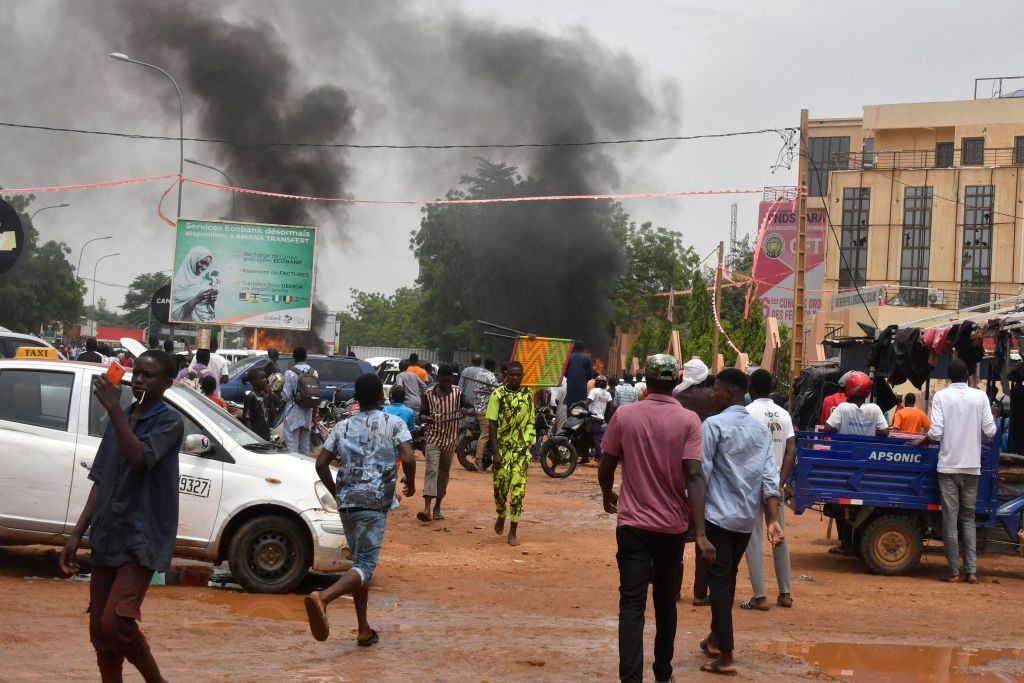ADF STAFF
The number of violent events involving extremist groups in Burkina Faso, Mali and Niger has nearly doubled since 2021.
That is according to a Reuters review of data from the Armed Conflict Location & Event Data crisis monitoring group, which recorded 224 violent events a month on average since January, up from 128 in 2021.
The Institute for Economics and Peace reported that Burkina Faso topped its Global Terrorism Index for the first time this year, with fatalities rising 68% to 1,907 — a quarter of all terrorism-linked deaths worldwide.
The military junta in Burkina Faso — and those in Mali and Niger — claimed its priority was to protect civilians from terrorism. But groups linked to al-Qaida and the Islamic State group (IS) have instead claimed more territory and increased attacks on security forces and civilians. According to the United Nations, about half of Burkina Faso is now beyond government control.
On August 24, the al-Qaida-affiliated group Jama’at Nusrat al-Islam wal-Muslimin (JNIM) killed up to 600 people in the central Burkina Faso town of Barsalogho, in what is considered one of the deadliest terror attacks in Africa in decades. Jihadists had killed at least 150 Burkinabe Soldiers in Barsalogho 15 days earlier.
“The two, big veteran terrorist (groups) are gaining ground,” Seidik Abba, president of the CIRES research institute in Paris, told Reuters, referring to al-Qaida and the IS. “The threat is spreading geographically.”
On September 17, JNIM brazenly attacked Bamako, Mali’s capital, striking the airport and a police training facility, killing more than 70 people. Will Linder, who runs a risk consultancy monitoring the region, said the attacks in Bamako and Barsalogho showed that counterterrorism efforts by the juntas in the countries were failing.
“The leadership of both countries really need new strategies for countering their jihadist insurgencies,” Linder told Reuters.
In late July, almost one year since the military coup in Niger, an armed terror group killed at least 15 Nigerien Soldiers in the Tillaberi region near the Burkina Faso border.
Last year, Niger’s junta ordered United States forces to leave a desert drone base in Agadez. The drones had gathered valuable intelligence about extremist activity in the Sahel. Increasing violence in the three countries coincides with the departure of French and U.S. forces, the drawdown of a United Nations presence and a growing reliance on Russian mercenaries.
“Nobody else filled the gap of providing effective air surveillance or air support, so the jihadis are roaming freely in those three countries,” said Wassim Nasr, a senior research fellow at The Soufan Center think tank, told Reuters.
A panel of U.N. experts that monitors al-Qaida and the IS estimates that JNIM now has 5,000 to 6,000 fighters while 2,000 to 3,000 militants are linked to the IS.
“Their declared goal is to establish Islamic rule,” Nasr told Reuters. They attempt to do so through coercion and offering basic services, such as local courts, to install their own governments in rural communities that may feel marginalized by the state.
“Come with us. We will leave your parents, sisters and brothers alone. Come with us and we will help you, we will give you money,” a man who fled Mali told Reuters citing a terror recruitment inducement. “But you can’t trust them, because they kill your friends in front of you.”
The groups receive some funding, training and guidance from their global leaderships. They also collect taxes and seize weapons after battles with state forces, according to the U.N.

